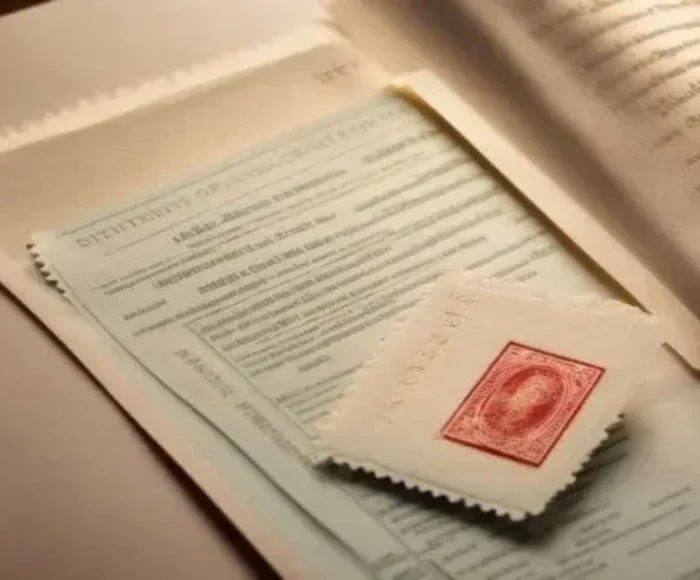Foreign court decision can be recognized and enforced in Turkish law with the condition that competent Turkish court grants the favor to foreign court decision. Recognition and enforcement of foreign court decision is done by a petition to a competent civil court in Turkey. Some foreign court decisions are subject to recognition and some are subject to enforcement. If the foreign court judgement requires implementation then recognition is not sufficient. The applicant must file a case on recognition of the foreign judgement.
Recognition and enforcement can be accepted by international treaties amongst contracting states such as Hague Convention on the Recognition and Enforcement of Foreign Judgments in Civil and Commercial Matters 1971. But Turkey is not a signatory country to the mentioned convention.
Enforcement includes recognition. The provisions of TPIL Act regarding enforcement is also applied for recognition. All the requirements for enforcement are going to be applied for recognition.
There is no limitation period for the the recognition and enforcement of the foreign court decision. But, according to article 8 of the Act on TPIL the statute of limitations is subject to the law applicable to the legal transaction or relationship.
According to article 54-58 certain condition are to be met by foreign court decision and applicant for competent Turkish court may grant recognition and enforcement.
Table of Contents
ToggleRecognition and Enforcement of Foreign Court Decisions in Turkey
Our law firm provides a legal service to our clients on Recognition and Enforcement of foreign Court Decisions with cost efficient and fast result-oriented principle.
With our expertise on both the merits of the cases and the recognition and enforcement procedures we serve our clients in their best interests.
Provision Related Recognition of Foreign Court Decisions
(1) The competent court shall render enforcement subject to the following conditions:
- a) Existence of an agreement, on a reciprocal basis between the Republic of Turkey and the state where the court decision is given or a de facto practice or a provision of law enabling the authorization of the execution of final decisions given by a Turkish court in that state,
- b) The judgment must have been given on matters not falling within the exclusive jurisdiction of the Turkish courts or, in condition of being contested by the defendant, the judgment must not have been given by a state court which has accepted himself competent even if there is not a real relation between the court and the subject or the parties of the lawsuit,
- c) The court decree shall not openly be contrary to public order,
- d) The person against whom enforcement is requested was not duly summoned pursuant to the laws of that foreign state or to the court that has given the judgment, or was not represented before that court, or the court decree was not pronounced in his/her absence or by a default judgment in a manner contrary to these laws, and the person has not objected to the exequatur based on the foregoing grounds before the Turkish court.
Provision Related to Enforcement of Foreign Court Decisions
(1) A foreign court decree may serve as a definitive evidence or final judgment, provided that the court decides that the foreign court decree fulfills the conditions of enforcement. Subparagraph (a) of Article 54 shall not apply to recognition.
(2) The same article shall apply to the recognition of undisputed court decrees.
(3) The same procedure shall apply in concluding an administrative transaction based on a foreign court decree.
Above mentioned provisions regulates whether the foreign court decision can be granted recognition and enforcement power in Turkey.
Conditions for Recognition and Enforcement in Turkey
Reciprocity
The first condition of recognition and enforcement is reciprocity. According to TPIL reciprocity can be provided by international agreement or a provision of law. On the other hand de facto application which means actual practice is also an considered to determine if reciprocity exist.
Turkish judge must look for a provision of law. The conditions of the foreign state for enforcement does not need to be same as Turkish law conditions. The similarity between them is enough.
Exclusive Jurisdiction
This condition is set for all petitions on recognition and enforcement. According to this condition foreign court judgements rendered for the issues that are in the exclusive jurisdiction of Turkish courts may not be enforced and recognized. If Turkish courts have exclusive judgement on the subject, that decision can not be recognized and enforced.
Exorbitant Jurisdiction
The foreign court which rendered the judgment should not have granted it self an exorbitant jurisdiction. Jurisdiction rules are based on the substantial and real connection between the place of the court and parties and the subject matter of the disputes. There must be real, complete, objective connections. If such real connections do not exist then the foreign court decision can not be enforced and recognized.
Public Policy
In principle, the court will not examine the foreign judgment for consistency with substantive laws. However, the foreign judgment rendered should not be on an issue that is subject to the exclusive jurisdiction of the Turkish courts, such as cases arising from rights in rem in immovable property and cases arising from consumer or insurance agreements.
Concerning public policy, Turkish courts will ex officio examine whether or not enforcement of foreign judgment explicitly violates Turkish public order. The foreign judgment cannot be enforced if it explicitly violates Turkish public order.
Important Notes on Recognition and Enforcement
Capacity to file a recognition and enforcement case is mentioned in TPIL article 52.
According to Article 52
“Any person who has a legal interest in enforcement a judgement may demand enforcement”
While an enforcement case must be filed as a separate trial, there is no need to file a case for recognition.
Foreign court judgement can be submitted during the case in order to be recognized. In principle there is no need to be file a second case for recognition
When one of the party files a recognition and enforcement case, there must be service to the defendant party.
According to Article 55
The recognition and enforcement of non- contentious judgments shall also be subject to the same provision. The provision pertaining to the notification shall not apply to ex-parte non-contentious judgments. The request is heard and adjudicated pursuant to simple proceeding provisions.
Turkish judge cannot review the merit of the case exception with the public policy.
Result of Recognition and Enforcement of Foreign Court Decree
Article 57– Foreign judgements for which a judgement of enforcement has been given shall be executed as if they were judgements given by Turkish courts. They will have the same effect as if they are given by Turkish Courts.
Competent Court on Recognition and Enforcement
Article 51/2 concerns this issue. Recognition and enforcement case can be filed at the court of domicile in Turkey of the person. If there is no such domicile the court of her/his habitual residence. If she/he has no domicile or habitual residence in Turkey, before either one of the Ankara, Istanbul or Izmir courts.
Contact Us
In conclusion, navigating the intricacies of recognizing and enforcing foreign court decisions in Turkey can be a complex and challenging process. It requires a deep understanding of both international and Turkish law, as well as experience in dealing with cross-border legal matters. At Han & Partners Law Firm, our team of experienced English-speaking lawyers in Istanbul is well-versed in this area of law and can provide you with the expert guidance and support you need. Whether you are a foreign individual seeking enforcement in Turkey or a Turkish entity looking to enforce a foreign court decision abroad, our dedicated legal professionals are here to assist you every step of the way. Don’t hesitate to reach out to us today for a consultation, and let us help you navigate the legal landscape with confidence. For more information, visit our website and contact us from here.





